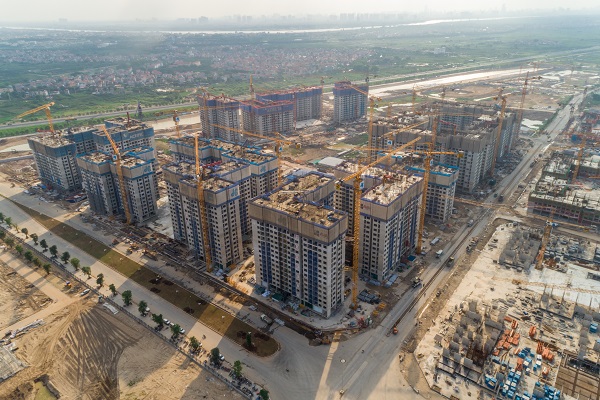HCMC – The Government has assigned the State Bank of Vietnam (SBV) to implement a credit package of VND120,000 billion for developing homes for the poor and workers, and renovating or re-building aging apartment blocks.
The SBV, the country’s central bank, was tasked with directing commercial banks, mainly Agribank, BIDV, Vietcombank and VietinBank, to make loans available for investors and buyers of social housing and renovation and construction of old apartment buildings.
The credit package will offer soft loans at interest rates lower than normal market levels, which would be 1.5-2 percentage points lower than the average mid- and long-term interest rates of state-owned commercial banks.
According to the Vietnam News Agency, when deciding on the package, the Government determined that developing social housing projects for low-income earners was included in the investment portfolio funded by the locality’s mid- and long-term source of finance.
While waiting for the National Assembly to approve the revised Law on Housing, the revised Land Law and the revised Law on Real Estate Business, the Government will propose the Government consider and issue a resolution on piloting several policies to step up the development of social housing.
The pilot policies include land allocation for social housing projects; planning and allocation of land banks for social housing development; selection of investors for social housing projects; rights and incentives of investors; and home pricing, rental, hire purchase prices of social homes and those eligible for the social housing policy.
The VND120,000-billion credit package, equal to 12% of capital demand, will be launched to realize at least one million homes for the poor and workers in 2021-2030.
The above package is part of the solutions given by the Government to remove hindrances and boost the safe, healthy and sustainable development of the realty market.
According to the HCMC Real Estate Association, if the package effectively gave credit access for those mentioned above, it would stimulate the market supply of real estate and partially contribute to helping the now-frozen property market recover.









